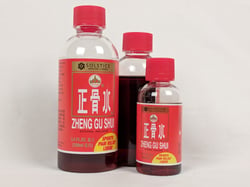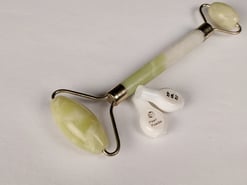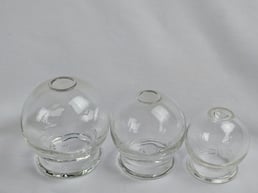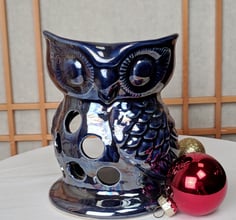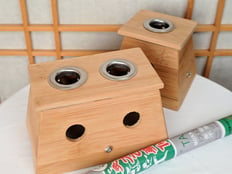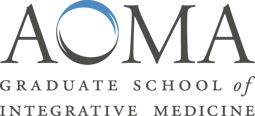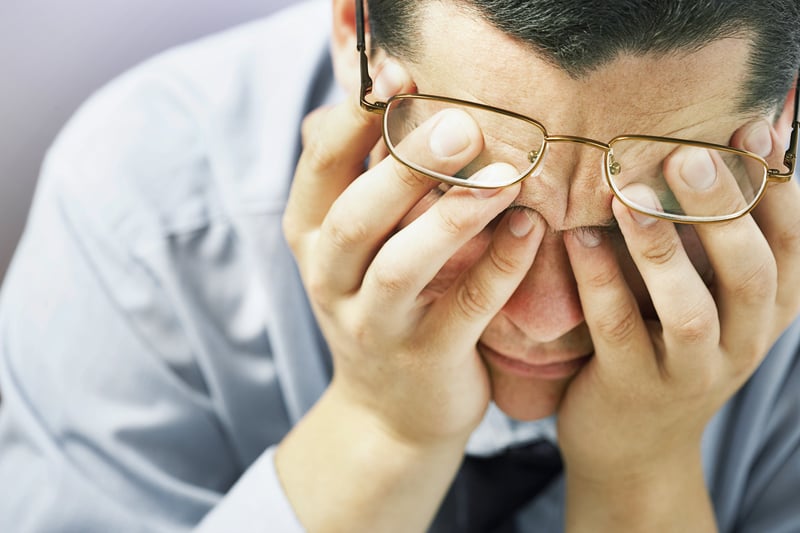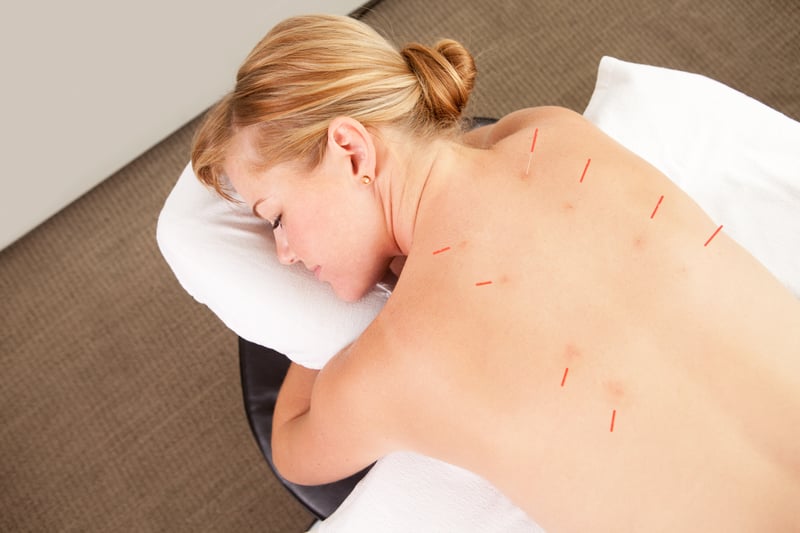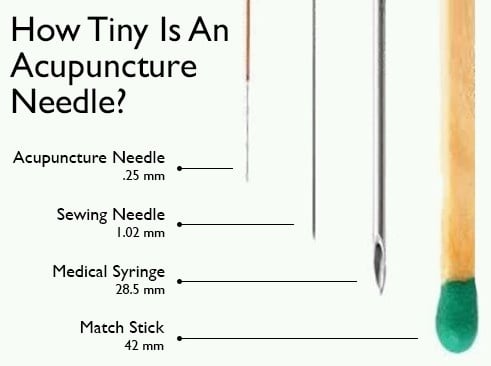Women’s History Month, first beginning as Women’s History Week in 1981, honors the contributions women have made to a variety of fields, commemorating and encouraging the study, observance, and celebration of the vital role of women throughout history.
AOMA is fortunate to have several brilliant women acupuncturists in our Professional Clinic, all of whom are also faculty members and clinic supervisors at the Student Intern Clinic. Every day they contribute to the world and to the AOMA community by transforming the lives of patients and sharing their knowledge and wisdom with the future acupuncturists of AOMA’s student body. In honor of Women’s History Month, join me in learning more about these incredible women – I know you will find them as amazing and inspiring as I do!
Zhenni Jin, DAOM, L.Ac.
Why did you choose to become an acupuncturist?
Acupuncture and Chinese medicine were my first majors at the university; with 10 years of study, I’ve realized that this medicine helps people and supports health in a holistic way which is my goal and ambition with healing.
What qualities make a great acupuncturist?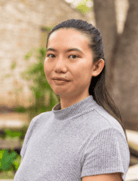
Modesty, patience, and intelligence.
What accomplishment are you most proud of in your career?
Studying and practicing TCM in three different countries and regions.
What has been your biggest challenge as a woman in the TCM field?
Certain treatment modalities (like tuina) can be hard for women to practice considering body strength and keeping boundaries with patients.
What woman in your past has inspired you and how?
My first supervisor during my undergrad residency; she was the chief physician in the department, but she was so patient with me and guided me step by step.
Do you want to change any assumptions about women? Why?
There can be an assumption that women’s health should be all female practitioners’ strength. This is not true, and female practitioners have the ability to do other fields of medicine.
How do you balance your career with your family life, volunteer work, hobbies, and other interests? Has that balance changed over time?
There is no conflict between my career and life so far, luckily. As a practitioner there can often be some pressure and stress from your cases, and I can talk with my family about my stressful feelings. Listening to your trusted ones helps a lot with the emotional stress from work.
Can you tell us about a university or education experience that shaped your future career as an acupuncturist?
I joined a two-year Fellowship program by AIHM (Academy of Integrative Health and Medicine) last year as a White House Scholar. This educational experience connected me with many integrative practitioners over the states and largely expanded my vision of medicine and human health.
How important is higher education to the future of women and the world?
Higher education is crucial for the world, not only for women, not only for healthcare providers. Higher education provides a higher level of opportunity and challenges.
What message or advice would you like to share with other women acupuncturists or future acupuncturists?
I wish for you to seize any opportunity in your practice and career to become a better practitioner and serve the world.
Qiao ‘Chelsea’ Xu, MD (China), L.Ac.
Why did you choose to become an acupuncturist?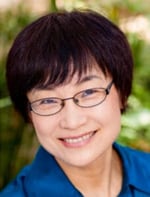
I heard a lot of stories about traditional Chinese medicine as a child. My mother once told me a story from her own childhood, over 80 years ago where my aunt had gotten shingles. Through using a combination of moxibustion and acupuncture, my grandmother was able to help my aunt recover very effectively. As I grew up, this story really resonated with me and helped drive me towards studying acupuncture.
What qualities make a great acupuncturist?
A great acupuncturist needs to be detail oriented, but also compassionate and mindful.
What accomplishment are you most proud of in your career?
There are two components to this: educating patients to empower themselves in their own life. Whether it be through qigong, dietary adjustments, mindfulness - helping patients balance their physical and mental health preventatively, not just symptomatically has been very fulfilling. As a teacher, I'm very proud of helping my students use TCM concepts to emphasize the connection between themselves and the universe around them. That mind-body balance and applying this to their treatment style.
What has been your biggest challenge as a woman in the TCM field?
The biggest challenge has been balancing work and my family.
What woman in your past has inspired you and how?
My mother is my biggest inspiration. She is loving, strong, and hard working - and fascinated with TCM. I saw her treat conditions that my father was enduring using TCM that even MDs failed to treat properly really. She really inspired me to become the practitioner I am today.
How do you balance your career with your family life, volunteer work, hobbies, and other interests? Has that balance changed over time?
Before getting married - I worked long hours in the hospitals. Finding the right balance after starting a family meant I had to figure out how to manage my time in new ways. For me this meant finding new efficiencies throughout the day. Listening to lectures while making a meal, or simple toe raises while sitting. A balance between maintaining an active mind and body without feeling like I was forcing anything. I'm proud of the effort I put into my family and career. That balance has to come from what feels right to each person. Over time as my children leave home, I've had time for more hobbies.
Can you tell us about a university or education experience that shaped your future career as an acupuncturist?
While a medical intern I remember an experience with a professor that was a very experienced eye acupuncturist. He was over 80 at this point, having developed many of his own techniques and practices. I'm nearsighted. My very first experience being treated by him was transformative - I could feel a lightness in my eyes. This experience really inspired me on how effective acupuncture could be.
How important is higher education to the future of women and the world?
Higher education is important not just for economic liberation and women's careers - but also to uplift and be an example for the next generations.
What message or advice would you like to share with other women acupuncturists or future acupuncturists?
Love your patients. Love your job. The community and bonds formed are just as important as the career driven aspect of this profession. Take pride in your work with passion.
Yaoping ‘Violet’ Song, PhD, L.Ac.
Why did you choose to become an acupuncturist?
I wanted the opportunity to be able to help people.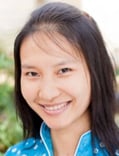
What qualities make a great acupuncturist?
First and foremost, caring.
What accomplishment are you most proud of in your career?
Having helped people back to health.
What has been your biggest challenge as a woman in the TCM field?
Not really challenge nowadays, but more advantages.
What woman in your past has inspired you and how?
There are a lot of them! My mom, my teachers, my coaches. They taught me to be Kind, Brave, and Smart.
Are there any assumptions about women that you would like to change? Why?
I really don't care about assumptions.
How do you balance your career with your family life, volunteer work, hobbies, and other interests? Has that balance changed over time?
It's a dynamic balance. I'm always adjusting it.
Can you tell us about a university or education experience that shaped your future career as an acupuncturist?
I appreciate all my education experience and it's an ongoing process.
How important is higher education to the future of women and the world?
Higher education is equally important for both men and women.
What message or advice would you like to share with other women acupuncturists or future acupuncturists?
Don't give up!
Reagan Taylor, MAcOM L.Ac.
Why did you choose to become an acupuncturist?
I used to work as a direct care staff for adults with intellectual disabilities, which can be incredibly challenging and deeply rewarding. As enriching as my experiences were, I knew I didn’t want to be a direct care staff forever, nor did I want to work as an administrator for a facility. This left me wondering how my desire to work with this community would manifest…then I had my first acupuncture treatment that changed everything. My world opened up, and I set on a path to become a Chinese medicine practitioner or the specific purpose of bringing it to the special needs community.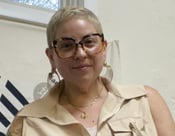
I worked at a facility during the entirety of my undergrad, throughout my master’s degree at AOMA, and remained working there after I graduated and became licensed. At the same time, I explored opportunities to treat the residents where I worked and build a practice. Since then, my career goals have shifted more towards clinical education, but I still have a deep desire to dedicate my time and expertise to this amazing community.
Now, as a full-time faculty at AOMA, I still hope to bring this incredible medicine to the special needs community by way of developing a student clinic. I can’t imagine a better way to serve those with cognitive disabilities than train and educate future healthcare professionals to work with these individuals with compassion and competency.
What qualities make a great acupuncturist?
Generally, I would say knowledge, compassion, confidence and a deep philosophical understanding of yin and yang. Ultimately, patients decide what makes a good acupuncturist according to their world views and values.
What accomplishment are you most proud of in your career?
My career is really just getting started, but as a practitioner, I must say I’m most proud of my attentiveness to my patients and the quality treatments I offer. I genuinely love Chinese medicine and providing patient care, and I believe that comes through when I’m with my patients. This also translates into my work as an instructor at AOMA with the students I teach and mentor. I feel that I’m trusted, and that truly means a lot to me.
What has been your biggest challenge as a woman in the TCM field?
I’m a rather opinionated person who isn’t afraid to use my voice when necessary (even when it’s not). Let’s just say I’m no shrinking violet, so I wouldn’t say that I personally have felt challenged as a woman in the world of TCM…yet. Although in the field as a whole, women are sorely underrepresented. Most of the practitioners in the United States are women; however, most of the people who have the most lucrative careers are men. Most of the well-known scholars of TCM are men. Most of the highest-paid educators are men. Most of the books are written by men. In this aspect, the world of TCM is no different from other industries. Knowing how many brilliant women there are in this field, I hope that dynamic shifts in the near future. Something tells me it absolutely will.
What woman in your past has inspired you and how?
Two women immediately come to mind: one of my oldest and closest friends, Shelagh Brown, and my teacher and mentor, Lesley Hamilton.
Shelagh has always been a force. She has challenged me in ways that provoke deeper analysis and critical thinking regarding society, spirit, and myself. Shelagh’s wide breadth of knowledge from plant medicine to racial injustice to history continually amazes and inspires me. I am the woman I am today because she constantly pushed me to be better and to do better, and I owe her the world.
AOMA is where it is today because Dr. Lesley Hamilton’s hard work, and anyone who knows anything will agree with me wholeheartedly. I have no idea how she does all of the things she does while maintaining her sanity and composure. She is quite literally Wonder Woman, and I have never met a more capable woman in all my life. The example Lesley set as an educator is what altered my career path to what it is today. When she can finally retire, her constant presence on campus and in AOMA’s community will be sorely missed.
Are there any assumptions about women that you would like to change? Why?
These days, a lot of the common misconceptions and assumptions about women are being challenged and are finally changing. If I had to choose one belief about women to change, it would be one that has plagued us for literally thousands of years and can be summed up in one word…hysteria. This word originates from the word hysteria, which is Greek for the uterus.
It doesn’t take a linguist or a scholar to see the blatant link between women and emotional upset. It’s time that this ridiculous view of women being so volatile in how we handle our emotions is set aside. Instead, I think it’s important to normalize everyone expressing natural emotion in healthy, productive ways. There is also value in showing compassion and understanding in the moments of emotional overwhelm, because that happens too.
How do you balance your career with your family life, volunteer work, hobbies, and other interests? Has that balance changed over time?
Everyone, regardless of their gender identity, needs to find a harmonious balance between work life and living life. In this day and age, it can be challenging to strike a true equilibrium. For myself, I’ve made it a point to focus on the aspects of life that keep my emotional cup full. While there are times I struggle with maintaining a perfect, peaceful balance, I always take time for my family, friends, and to get in some good snuggles with my dogs.
Can you tell us about a university or education experience that shaped your future career as an acupuncturist?
For myself, it goes the other way around. My desire to become an acupuncturist is what shaped my educational experiences. I didn’t know what I wanted to be when I grew up until I was 27. With only a few college-level classes under my belt, I basically had to start from the ground up and develop myself as a student with the end goal to become an acupuncturist.
AOMA was always the school I wanted to go to. I’m a local Austinite, so knowing the high quality of education that AOMA has, I didn’t see a need to go anywhere else. I studied the curriculum and built my undergrad experience with classes to best prepare me and serve my educational experience at AOMA. I focused on advanced sciences, particularly biology. I took psychology and sociology classes to expand my world views and understand different human experiences, which helps me in clinical practice, serving my patients the best way possible.
How important is higher education to the future of women and the world?
I find a lot of value in higher education, but not everyone has access to this privilege. I think women should be appreciated and respected, regardless of their educational level or career choices. We all have something to offer and things to teach one another.
With that being said, the world of higher education, and most trades, are dominated by men. This is changing rapidly, and women are now demanding recognition and respect in these spaces.
What message or advice would you like to share with other women acupuncturists or future acupuncturists?
Throughout every age of human history, women have a tradition of being healers…we shouldn’t shy away from embracing this powerful legacy. We are the backbone of this profession, and our contributions cannot and should not be understated, overlooked, or undervalued.


 ! - is that TCM, including acupuncture and traditional Chinese herbal medicine, can help. Nausea is the result of rising stomach Qi. According to AOMA clinician and licensed acupuncturist Dr. Nelson Song Luo, normally, stomach Qi should descend rather than ascend. What happens to people with motion sickness? In traditional Chinese medicine, the Qi and blood in the inner ear are provided by the san jiao (SJ), small intestine (SI) and gallbladder (GB) channels. The eyes are nourished by the liver channel. In a moving vehicle, the Qi and blood circulation in the SJ, SI, GB, and liver channels are disturbed by abnormal movements, which will cause the stomach Qi
! - is that TCM, including acupuncture and traditional Chinese herbal medicine, can help. Nausea is the result of rising stomach Qi. According to AOMA clinician and licensed acupuncturist Dr. Nelson Song Luo, normally, stomach Qi should descend rather than ascend. What happens to people with motion sickness? In traditional Chinese medicine, the Qi and blood in the inner ear are provided by the san jiao (SJ), small intestine (SI) and gallbladder (GB) channels. The eyes are nourished by the liver channel. In a moving vehicle, the Qi and blood circulation in the SJ, SI, GB, and liver channels are disturbed by abnormal movements, which will cause the stomach Qi 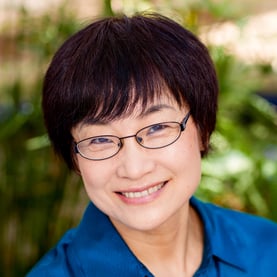
.jpg?width=257&name=Faculty_Headshot_HiR__Song_(1).jpg)
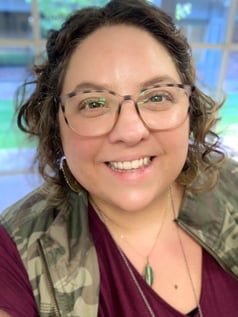 manifest…then I had my first acupuncture treatment that changed everything. My world opened up, and I set on a path to become a Chinese medicine practitioner or the specific purpose of bringing it to the special needs community.
manifest…then I had my first acupuncture treatment that changed everything. My world opened up, and I set on a path to become a Chinese medicine practitioner or the specific purpose of bringing it to the special needs community. 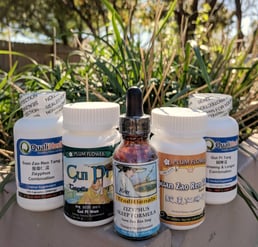
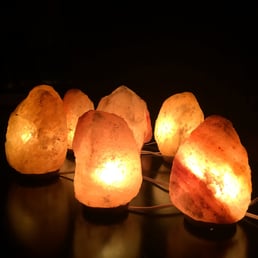
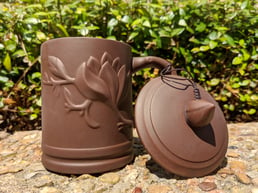
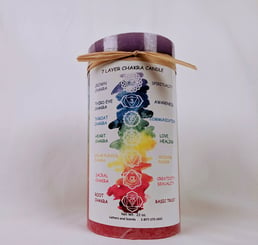
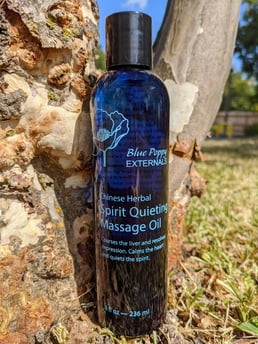
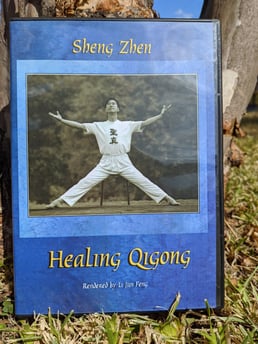
 We want you to know that we are taking every precaution to ensure the safety of our patients and staff, so you can feel safe, secure, and confident receiving acupuncture care in our office.
We want you to know that we are taking every precaution to ensure the safety of our patients and staff, so you can feel safe, secure, and confident receiving acupuncture care in our office.